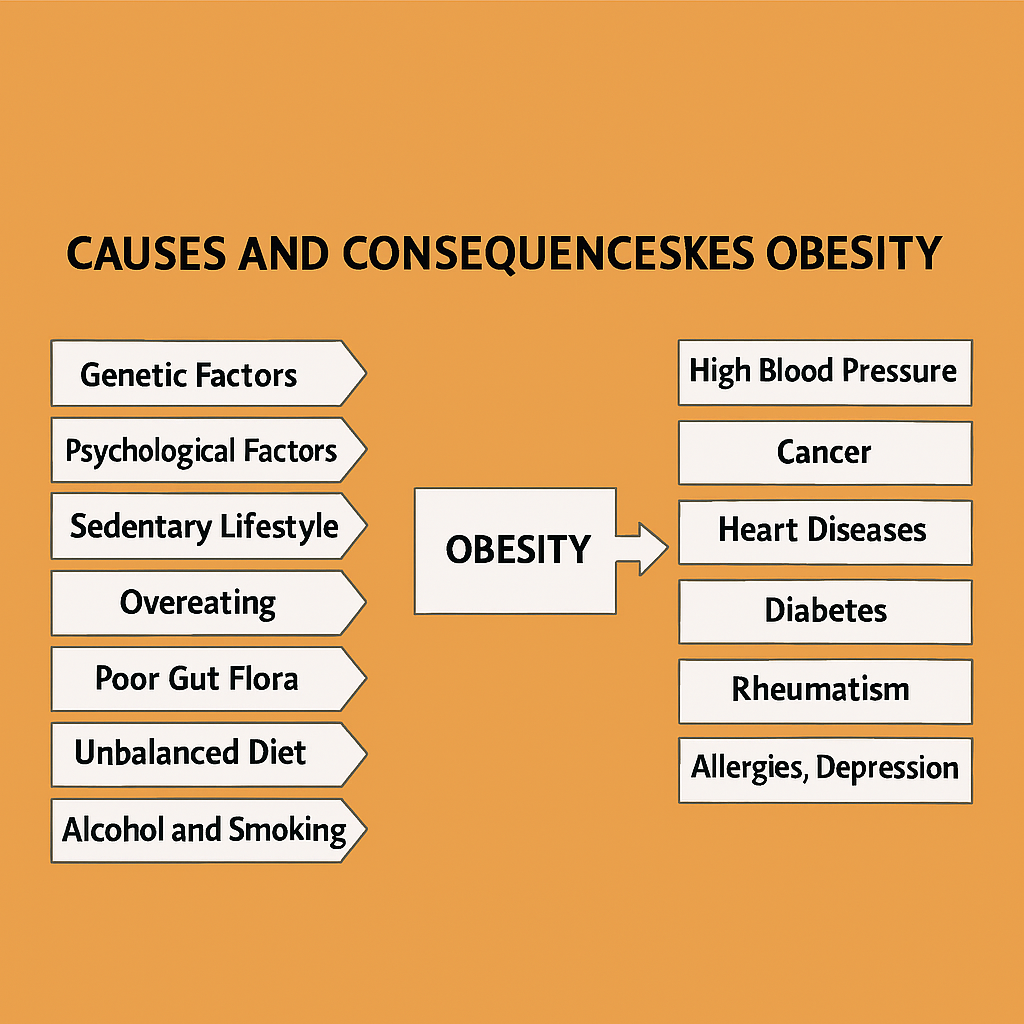Obesity
Contents
What is Obesity?
It is a disease that disrupts the body energy balance with excessive fat storage in the body and leads to many chronic diseases.
Obesity is not only an aesthetic problem with an increase in adipose tissue. Obesity is a complex regulation problem in which all balances of the body are disrupted.
Who is Obese?
Weight gain is assessed by Body Mass Index (BMI). It is calculated by dividing body weight by the square of height.
Body Mass Index = Body Weight (kg.) / Square of height (m.)
Obesity Classification and Disease Risk
| Weight Status | Body Mass Index (BMI) | Disease Risk |
| Low Weight | ≤ 18,5 | |
| Healthy | 18,5-24,9 | |
| Overweight | Increased | |
| Class-① | 30,0-34,9 | High |
| 35,0-39,9 | Very High | |
| Class-③ | ≥ 40 | Extremely High |
What Causes Obesity?
Obesity is an indication that the body balance is disrupted. In order for a person to be at a normal weight, the digestive system must work healthily, the hormones must be regular, the person’s psychology must be normal, they must have a balanced diet and do regular exercise.Disrupted Digestive System: Excluding rare genetic and endocrine diseases, the most common cause begins with the disruption of the intestinal flora. The disruption of the intestinal flora occurs due to factors such as birth by cesarean section, not breastfeeding, disrupted flora received from the mother, poor eating habits, and use of medications, especially antibiotics. With the disruption of the flora, candida fungi, which are normally found in small amounts and harmlessly in the intestine, begin to reproduce. With the disruption of the flora and the reproduction of the candida fungus, insulin resistance develops and obesity is paved the way. With the entry of toxins and heavy metals from the intestine, which becomes excessively permeable with obesity, the path to many diseases is paved. Psychological Factors: In people with inner emptiness, the physiological feeling of fullness is lost, eating habits are disrupted and the inner emptiness is tried to be completed by eating. However, the role of intestinal flora disorder and hyperleakage syndrome is very great in the formation of depression, anxiety and obsessive diseases. On the other hand, psychological stress is also an important factor that disrupts flora and intestinal functions. Psychological factors and intestinal functions negatively affect each other as a vicious cycle.
- Bad Nutrition: Apart from psychological factors, we also have a diet that includes excessive grains and sugar, eating even rice with bread. In addition, fast food and junk food eating habits are also quite common due to the modern age of speed.
- Lack of Exercise: It is a well-known fact that a portion of the calories consumed must be burned with regular exercise. For this, it is necessary to take 45-50 minute walks at least 3-4 days a week.

Frequently Asked Questions
Do you have any other questions?
We have created this section so you can quickly find the information you need. It’s very easy to get answers to your questions. If you need more information, you can use the contact form.